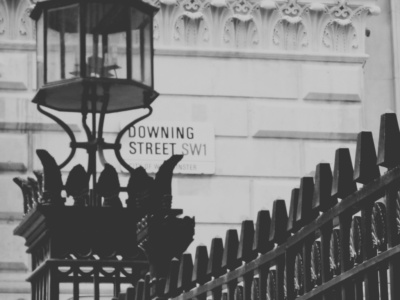Labour leader Jeremy Corbyn addressed the Labour Party’s annual conference in Brighton on 24th September, for the fourth year in a row, since being elected as leader, unveiling the party’s plans for housing in the run-up to a potential general election.
However, Mr Corbyn’s speech was criticised for being light on detail and even viewed as simply repeating core policy pledges from his speech at the party conference in Liverpool in 2018, according to the Royal Institute of Chartered Surveyors (RICS).
The judgement from RICS comes after a turbulent week for the government, as the Supreme Court ruled on 24th September that the prorogation of Parliament had been unlawful and void. MPs were subsequently recalled to Parliament, and voted against a government-led call for a recess, during the Conservative Party’s own conference.
Sense of déjà-vu
One of the key pledges that Mr Corbyn outlined at the Labour conference in Brighton was that utilities, including water, rail and the national grid, would be nationalised. Mr Corbyn also announced plans for a future Labour government to invest £250 billion in fresh infrastructure.
However, RICS noted that the speech was light on content regarding housing policy. Mr Corbyn spoke about the party’s need to stand up for tenants and initiate the greatest programme for council house building in a generation.
Despite this, Mr Corbyn did not elaborate on whether there was a specific build target in mind. RICS believed this made it difficult to see what impact such a policy could have on the UK’s housing supply, as well as the condition of properties.
RICS confirmed that it supported Labour’s plans to build more council homes, but reached out to the party to provide more details about how a potential Labour government would intend to deliver on such a policy. They also encouraged Labour to explore alternative methods of delivering on the pledge, to ensure that it didn’t simply become another arbitrary figure that wasn’t met.
Potential election in the offing
This year’s round of party conferences has attracted much attention, as it is widely expected that a general election will have taken place by the time the parties reconvene for their next conferences, this time next year. The government repeatedly called for MPs to vote to call a snap election, but MPs simply rejected the motions, effectively locking the Prime Minister in office.
Mr Johnson is under pressure to abide by a bill passed by MPs earlier this month, which requires him to seek an extension to Article 50, in the event that the government is unable to secure a withdrawal agreement with the EU by the end of October.
The bill would require Mr Johnson to write a letter to the President of the European Council, asking for an extension of Article 50 until 31st January 2020. Mr Johnson has insisted that the UK will leave the EU, with or without a withdrawal agreement.






















No mention then of the John McDonnell’s proposed “THEFT FROM CITZENS BILL” aka Tenant Right to Buy at a discount of privately owned properties by Government setting the level of theft from private landlords. Add to this the Marxist rent control proposals and you are back to the Rent Act 1977 when 60% or so discount off open market values when the tenant had security of tenure. The market was paying around 40% of Open Market Values on such protected tenanted property (this is based on previous figures when the Rent Act 1977 was in force). Whether you are a labour supported or not many private sector landlords are tradesmen and working people who invested for the pensions. Buy to Rent investments were made by a wide variety of members of society and not all “rich boys”
Why was their no mention of these proposals particularly when this is a property related media?
Labour would Bankrupt the UK in months and take us back to the Dark ages, ridden with debt and the Theft of Utility shares would harm everybody’s pensions ( including Labour voters)